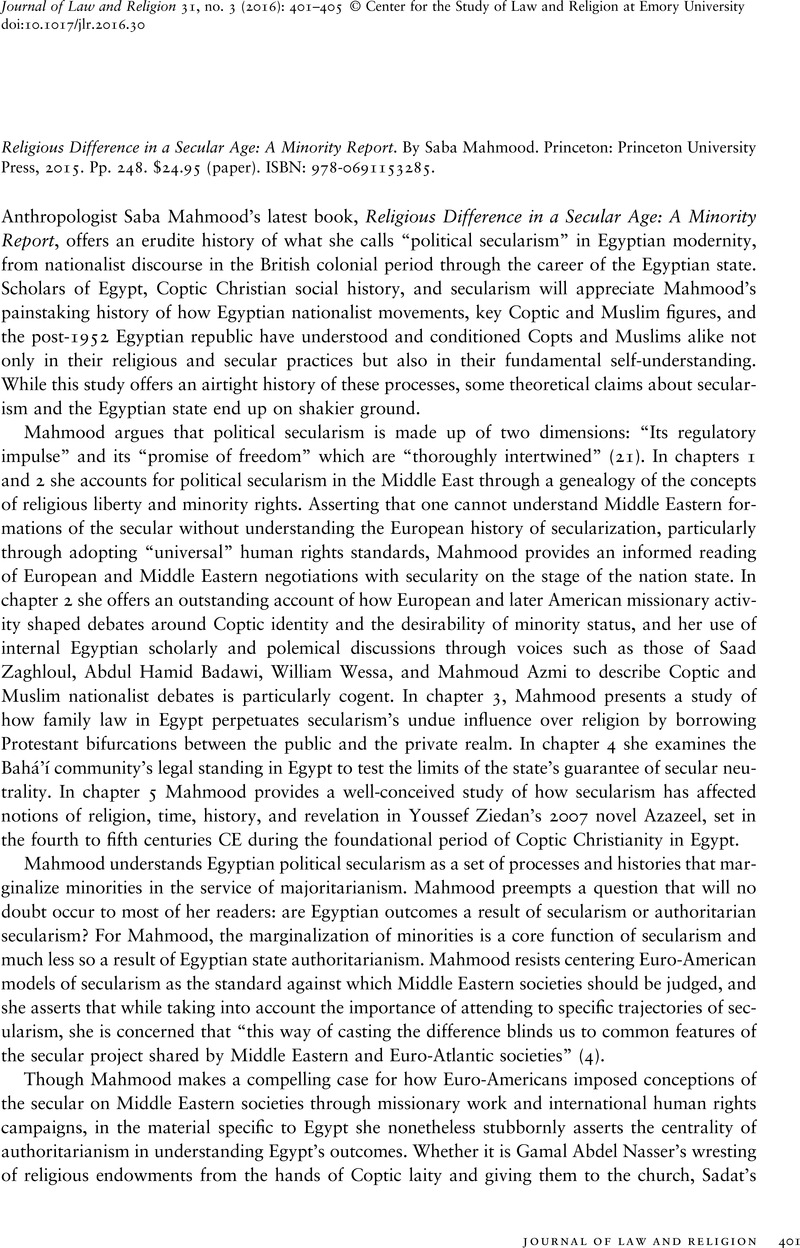No CrossRef data available.
Published online by Cambridge University Press: 21 November 2016

1 See Masood, Tarek, Counting Islam: Religion, Class and Elections in Egypt (Cambridge: Cambridge University Press, 2014)CrossRefGoogle Scholar.
2 See Wickham, Carrie Rosefsky, Mobilizing Islam: Religion Activism and Political Change in Egypt (New York: Columbia University Press, 2002)Google Scholar.
3 Islamic legal scholar Baber Johansen made this observation in a lecture at Harvard University in the fall of 2008.
4 Atalia Omer, review of Religious Difference in a Secular Age: A Minority Report, by Mahmood, Saba, Journal of the American Academy of Religion 84, no. 2 (2016): 584Google Scholar. Omer continues: “If not, isn't it time to move beyond relentless critique?”
5 Ussama Makdisi, in his review of Mahmood, describes Mahmood's notion that the Ottoman Empire featured less “majoritarian chauvinism” as “arbitrary.” He continues, “The Ottomans could be and were mercilessly violent to any group that challenged, or was thought to challenge, their power. Ecclesiastical/communal autonomy was, moreover, often predicated on suppressing diversity, equality and legal pluralism within particular communities.” Ussama Makdisi, “The Limits of Anti-Secularist Critique,” Politics, Religion and Ideology 17, no. 1 (2016): 78.
6 Asad, Talal, “Thinking about Religion, Secularism and Politics in Egypt Today,” Critical Inquiry 42, no. 1 (2015): 169–70CrossRefGoogle Scholar.
7 See Hazem Kandil, “The End of Islamism?” London Review of Books (blog), July 4, 2013, http://www.lrb.co.uk/blog/2013/07/04/hazem-kandil/the-end-of-islamism/.